-
GeneralGeneral
-
Homepage


Welcome to the NIED Peer Mentor Training Course
The NIED Peer Mentor Training Course is designed to equip community members with the skills, knowledge, and confidence to serve as peer mentors for caregivers of loved ones with eating disorders. Rooted in community connection and mutual support, this program provides practical training on how to engage meaningfully with peers, foster empowerment, and promote sustainable well-being.
Participants will learn about:
-
The principles of peer support and mentorship.
-
Effective communication, active listening, and boundary-setting.
-
Understanding trauma, resilience, and recovery in context.
-
Navigating community resources and referral systems.
-
Promoting hope, empowerment, and self-determination.
This program is meant to provide foundational training for community members new to peer mentorship, and prepares participants to provide peer-led guidance while respecting human dignity, rights, and lived experiences.
The program can be used as Foundational training for community members new to peer mentorship.
This course was developed in partnership with, and is sponsored by, the National Initiative for Eating Disorders (NIED). The training was created using the NIED Peer Mentor Training Manual 1:1 Peer Support Program as its foundation and is specifically designed to complement and extend the manual into an interactive, competency-based learning experience. Participants must successfully complete this course in order to volunteer with NIED as a peer mentor.
Like all courses on the NextGenU.org platform, the NIED Peer Mentor Training Course is competency-based, evidence-informed, and aligned with international best practices. It integrates learning resources from accredited organizations and peer-reviewed literature to ensure learners receive high-quality, practical training.
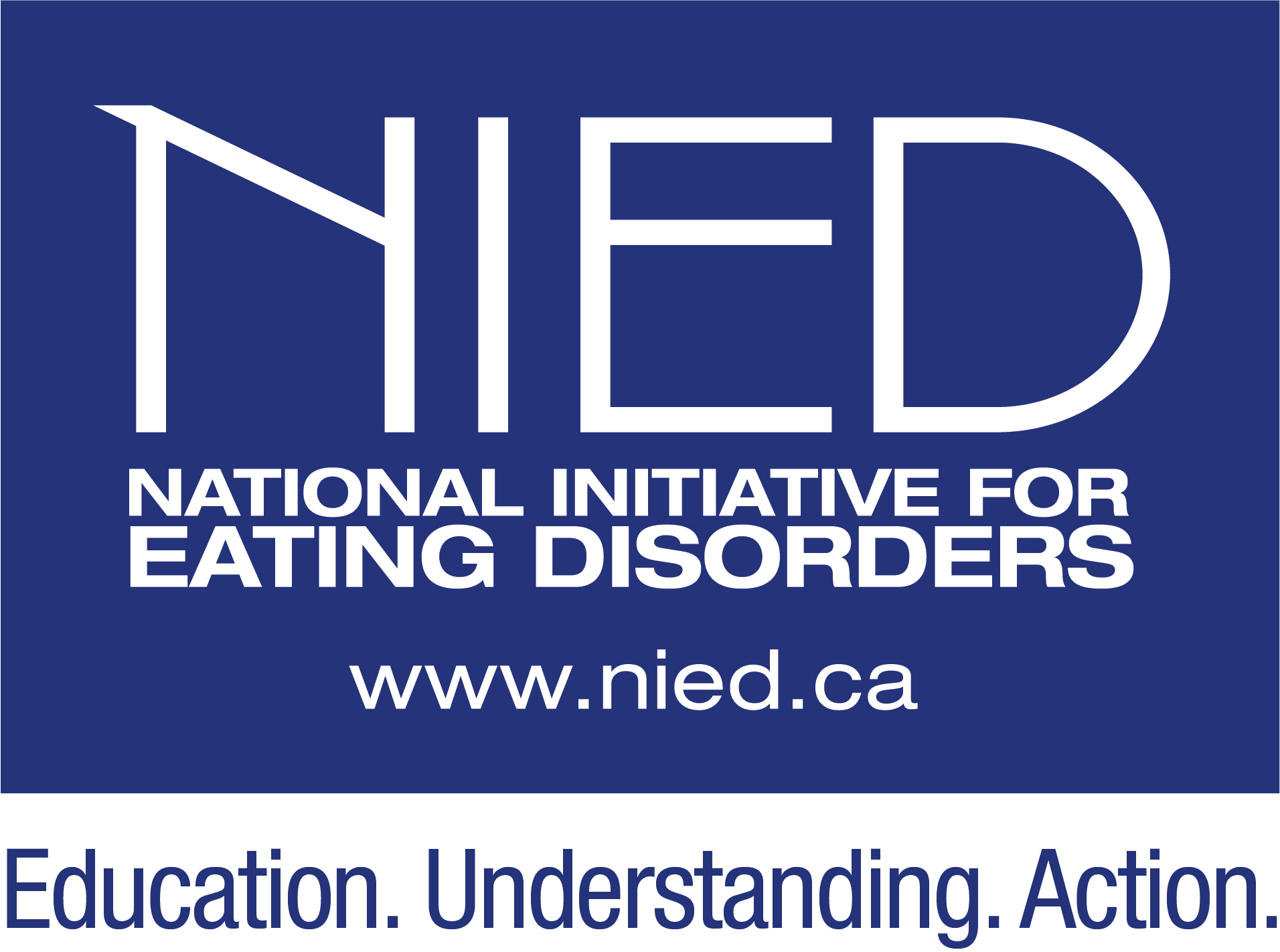
There are ten (10) modules to complete, which include:
-
Introduction to Eating Disorders
-
The Peer Mentor Role
-
Mentoring Skills
-
Communication Skills
-
Caregiver Wellbeing
Providing Information
-
Coping Strategies
Setting Goals
Boundaries
Website Navigation and Documentation
Engaging with this Course:
You may browse this course for free to learn for your personal enrichment; there are no requirements.
To obtain a certificate, a learner must first register for the course and then successfully complete:
- All the reading requirements,
- All quizzes and pass with a 70% with unlimited attempts,
- All activities,
- The final exam with a minimum of 80% with unlimited attempts, and
- The self and course evaluation forms.
Here are the next steps to take the course and earn a certificate.
- Complete the registration form.
- Begin the course with Module 1: Introduction to Eating Disorders. In each module, read the description, complete all required readings and any required activity, and take the corresponding quizzes.
-
-
Resources
There are different types of resources prepared for you in this module. Below is a description of all the resources. The list is presented in the recommended order for your exploration before taking the lesson quiz:
- The Peer Mentor Training Manual - the manual is a key component of this course, we encourage you to read the respective module in the manual before beginning the module in the course.
- Micro-Learning - each module contains one micro-learning. Micro-learning provides an interactive experience with active learning strategies as we try to facilitate varying learning styles.
- Study Guides- these documents are more concise than the Manual. You can use them to quickly browse topics, or, to refresh your mind about the content covered. They also contain practice questions, more explanations, and example situations.
- Flashcards - each module contains one set of flashcard. Flashcards allow for active recall during studying, and help you to know if you understand the module at a glance.
- Peer Mentor Training Companion Bot - the chat bot is trained using materials and resources specific to this course. You can chat with the bot if you need help in understanding material or if you want more practice. The tutor bot can explain topics, prepare quizzes, activities and much more to enhance your learning experience! The tutor bot is not intended to replace professional advice or help, it is intended to supplement the material in the course to reinforce your understanding.
- Branching Logic Scenarios - these are interactive activities where the flow of a presented situation depends on your choices. Each decision you make leads to different outcomes, allowing you to explore various consequences and paths within the scenario. We encourage you to repeat these activities, selecting different options each time to allow yourself to benefit from all of the materials.
-
Meet Maya and Eli
Maya is a mother whose daughter recovered from anorexia nervosa. Through years of navigating treatment, setbacks, and eventual
 recovery, she has developed resilience, empathy, and perspective. Now, Maya is ready to give back by becoming a peer mentor, using her lived experience to bring hope and support to other caregivers.
recovery, she has developed resilience, empathy, and perspective. Now, Maya is ready to give back by becoming a peer mentor, using her lived experience to bring hope and support to other caregivers.Eli is a father whose teenage son was recently diagnosed with bulimia. Unlike Maya, Eli is at the beginning of the caregiving journey. He feels overwhelmed by guilt, confusion, and fear, and struggles to find someone who truly understands his experience.
Throughout this course, you will follow Maya and Eli through a complete mentoring cycle, demonstrating the application of each module’s concepts in a realistic, evolving relationship.
-
Introductory Module: Introduction to Eating Disorders
Upon completion of this lesson, you will be able to: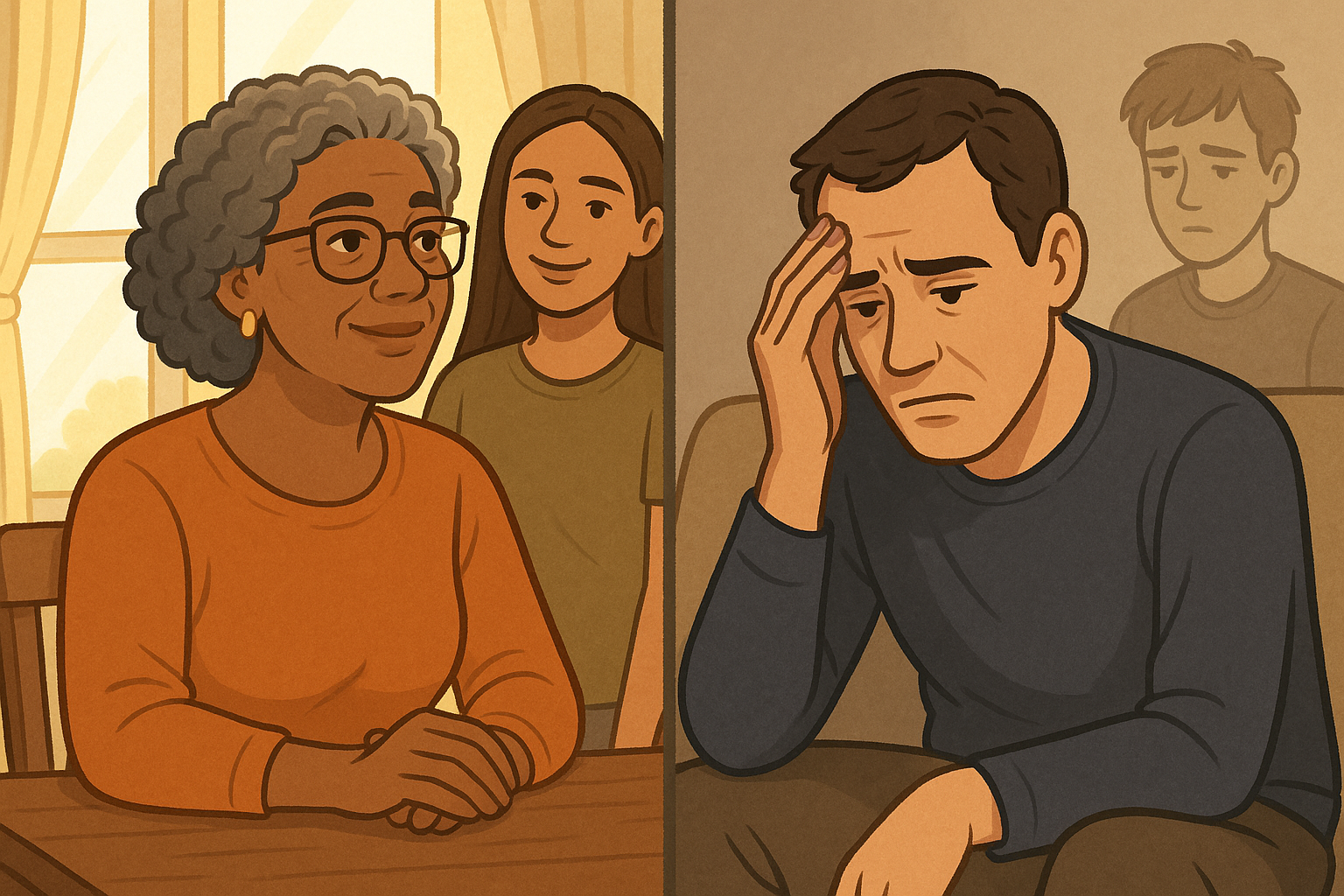 Maya reflects on her past as a mother whose daughter struggled with anorexia nervosa, remembering the fear and uncertainty but also the hope that carried them through to recovery. Meanwhile, Eli, a father whose teenage son was recently diagnosed with bulimia, feels overwhelmed, guilty, and unsure of where to turn for support.
Maya reflects on her past as a mother whose daughter struggled with anorexia nervosa, remembering the fear and uncertainty but also the hope that carried them through to recovery. Meanwhile, Eli, a father whose teenage son was recently diagnosed with bulimia, feels overwhelmed, guilty, and unsure of where to turn for support.This module introduces learners to the varied perspectives of eating disorders across genders and family roles. By following Maya’s resilience and Eli’s early crisis, you will explore the initial emotions caregivers experience: guilt, confusion, and fear, while also recognizing the vital role of hope in the recovery journey.
Learning Objectives:
1. Identify the major types of eating disorders and their symptoms
2. Recognize the unique challenges faced by caregivers of individuals with eating disorders
3. Understand the impact of eating disorders on family dynamics
4. Explain the importance of hope and recovery-oriented approaches
Approximate time required for the readings for this lesson (at 144 words/minute): 30 minutes
2 Files, 1 URL, 2 SCORM packages, 1 Quiz -
Module 1: The Peer Mentor Role
 Maya completes her self-assessment and application to become a peer mentor, reflecting on whether her caregiving experience can truly benefit others. At the same time, Eli feels isolated, searching for someone who understands what he is going through as a father of a child with an eating disorder.
Maya completes her self-assessment and application to become a peer mentor, reflecting on whether her caregiving experience can truly benefit others. At the same time, Eli feels isolated, searching for someone who understands what he is going through as a father of a child with an eating disorder.This module highlights how personal strengths developed in caregiving—such as patience, empathy, and resourcefulness—can translate into effective mentoring. You will also learn about the unique role peer mentors play, the stages of the mentoring relationship, and why caregivers like Eli seek this form of support.
Learning Objectives:
Upon completion of this lesson, you will be able to:
- Explain the peer mentor role
- Understand the stages of the peer mentor relationship
- Identify personal strengths relevant to mentoring
- Recognize why caregivers seek peer support
2 Files, 1 URL, 2 SCORM packages, 1 Quiz, 1 Forum -
Module 2: Mentoring Skills
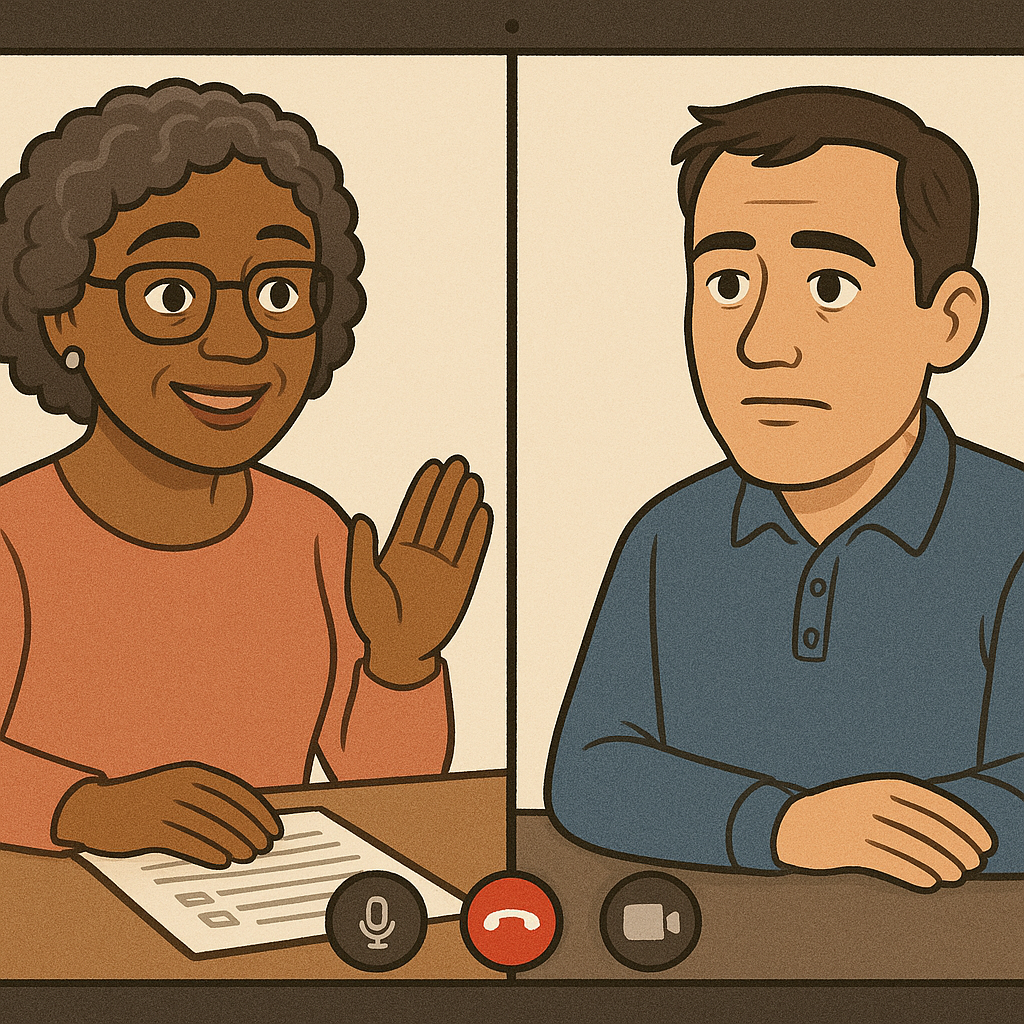 Maya is matched with Eli and prepares for their first conversation. She reviews the five mentoring skills framework, considering how to apply it, while Eli approaches the meeting with hesitation and skepticism about whether peer mentoring will truly help.
Maya is matched with Eli and prepares for their first conversation. She reviews the five mentoring skills framework, considering how to apply it, while Eli approaches the meeting with hesitation and skepticism about whether peer mentoring will truly help. In this module, you will explore the Support, Learn, Share, Inform, Dream (SLSID) framework and how it guides mentoring interactions. You will learn how mentors build trust in the early stages of the relationship and how to recognize and respect the boundaries of the mentor role.
Learning Objectives:
Upon completion of this lesson, you will be able to:- Identify the five skills for effective peer mentoring (Support, Learn, Share, Inform, Dream)
- Distinguish between appropriate mentor activities and those outside the role
- Demonstrate qualities of effective mentors
- Recognize the benefits of peer mentoring
2 Files, 1 URL, 2 SCORM packages, 1 Quiz, 1 Forum -
Module 3: Communication Skills
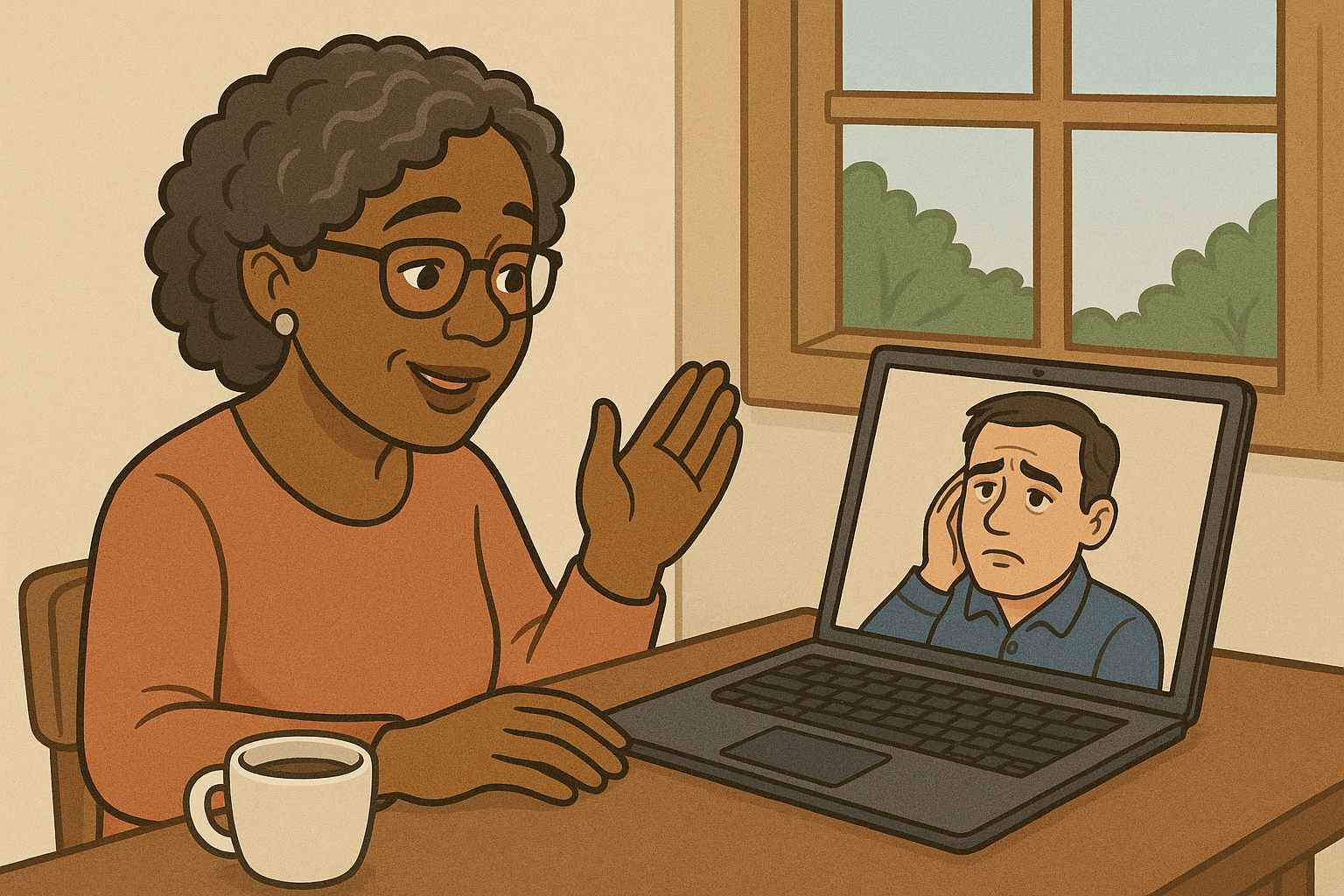 Maya and Eli have their first real conversation. As Eli describes his son’s secretive behaviours and his own feelings of helplessness, Maya practices active listening and holds back from giving immediate advice. Eli begins to open up when he feels genuinely heard.
Maya and Eli have their first real conversation. As Eli describes his son’s secretive behaviours and his own feelings of helplessness, Maya practices active listening and holds back from giving immediate advice. Eli begins to open up when he feels genuinely heard. This module focuses on effective communication strategies, including open-ended questioning, reflective listening, and managing difficult emotions. You will learn how these skills foster trust and connection, allowing mentees like Eli to feel safe sharing their experiences.
Learning Objectives:
Upon completion of this lesson, you will be able to:
- Apply active listening techniques
- Use open-ended questions effectively
- Provide affirming statements
- Demonstrate reflective listening
- Summarize conversations appropriately
- Navigate telephone communication effectively
2 Files, 1 URL, 2 SCORM packages, 1 Quiz, 1 Forum -
Module 4: Caregiver Wellbeing
 Eli admits that he has been skipping meals, losing sleep, and withdrawing from friends while caring for his son. Maya recognizes these warning signs and gently shares how she once made similar mistakes, normalizing the challenges of self-care in caregiving.
Eli admits that he has been skipping meals, losing sleep, and withdrawing from friends while caring for his son. Maya recognizes these warning signs and gently shares how she once made similar mistakes, normalizing the challenges of self-care in caregiving.
This module emphasizes the importance of caregiver wellbeing. You will learn how to identify gaps across different dimensions of wellbeing, use affirming language to normalize self-care struggles, and encourage small, realistic steps toward healthier routines.
Learning Objectives:
Upon completion of this lesson, you will be able to:
- Identify different areas of wellbeing affected by caregiving
- Recognize signs of caregiver stress and burnout
- Provide appropriate wellbeing resources and strategies
- Share lived experience related to wellbeing challenges
2 Files, 1 URL, 2 SCORM packages, 1 Quiz, 1 Forum -
Module 5: Coping Strategies
 Eli describes a crisis when his son refused to attend a family dinner, leading him to lose his temper. Maya helps him process the situation, guiding him toward healthier coping techniques and suggesting strategies he can personalize for future stressful moments.
Eli describes a crisis when his son refused to attend a family dinner, leading him to lose his temper. Maya helps him process the situation, guiding him toward healthier coping techniques and suggesting strategies he can personalize for future stressful moments. This module helps you distinguish between reactive and proactive coping strategies, explore personalized stress management tools, and recognize when additional professional or community support may be needed.
Learning Objectives:
Upon completion of this lesson, you will be able to:
- Distinguish between healthy and unhealthy coping strategies
- Recognize signs of effective and poor coping
- Support caregivers in developing personalized coping strategies
- Identify when additional professional support is needed
2 Files, 1 URL, 2 SCORM packages, 1 Quiz, 1 Forum -
Module 6: Providing Information
 Frustrated with the conflicting information he has found online, Eli turns to Maya for clarity. Maya carefully shares resources that were helpful to her family, balancing her personal story with reliable evidence-based information, while reminding Eli that every journey is unique.
Frustrated with the conflicting information he has found online, Eli turns to Maya for clarity. Maya carefully shares resources that were helpful to her family, balancing her personal story with reliable evidence-based information, while reminding Eli that every journey is unique.
In this module, you will practice providing information at the right time and pace, ensuring that it empowers rather than overwhelms. You will also explore how to share personal experiences responsibly while maintaining hope and realism.Learning Objectives:
Upon completion of this lesson, you will be able to:
- Understand the benefits of providing appropriate information
- Apply best practices for information sharing
- Navigate common information resources
- Recognize when to refer to other information sources
2 Files, 1 URL, 2 SCORM packages, 1 Quiz, 1 Forum -
Module 7: Setting Goals
 After several conversations, Maya helps Eli identify a meaningful goal: attending a local parent support group. Together, they work through his practical and emotional barriers, such as limited time and discomfort with groups, breaking the process into manageable steps.
After several conversations, Maya helps Eli identify a meaningful goal: attending a local parent support group. Together, they work through his practical and emotional barriers, such as limited time and discomfort with groups, breaking the process into manageable steps.
This module covers strength-based approaches to goal setting, how to create SMART goals, and strategies for addressing both practical and emotional barriers that may stand in the way of progress.Learning Objectives:
Upon completion of this lesson, you will be able to:
- Apply strength-based approaches to goal setting
- Help caregivers develop S.M.A.R.T. goals
- Support caregivers through the goal achievement process
- Address barriers to goal completion
2 Files, 1 URL, 2 SCORM packages, 1 Quiz, 1 Forum -
Module 8: Boundaries
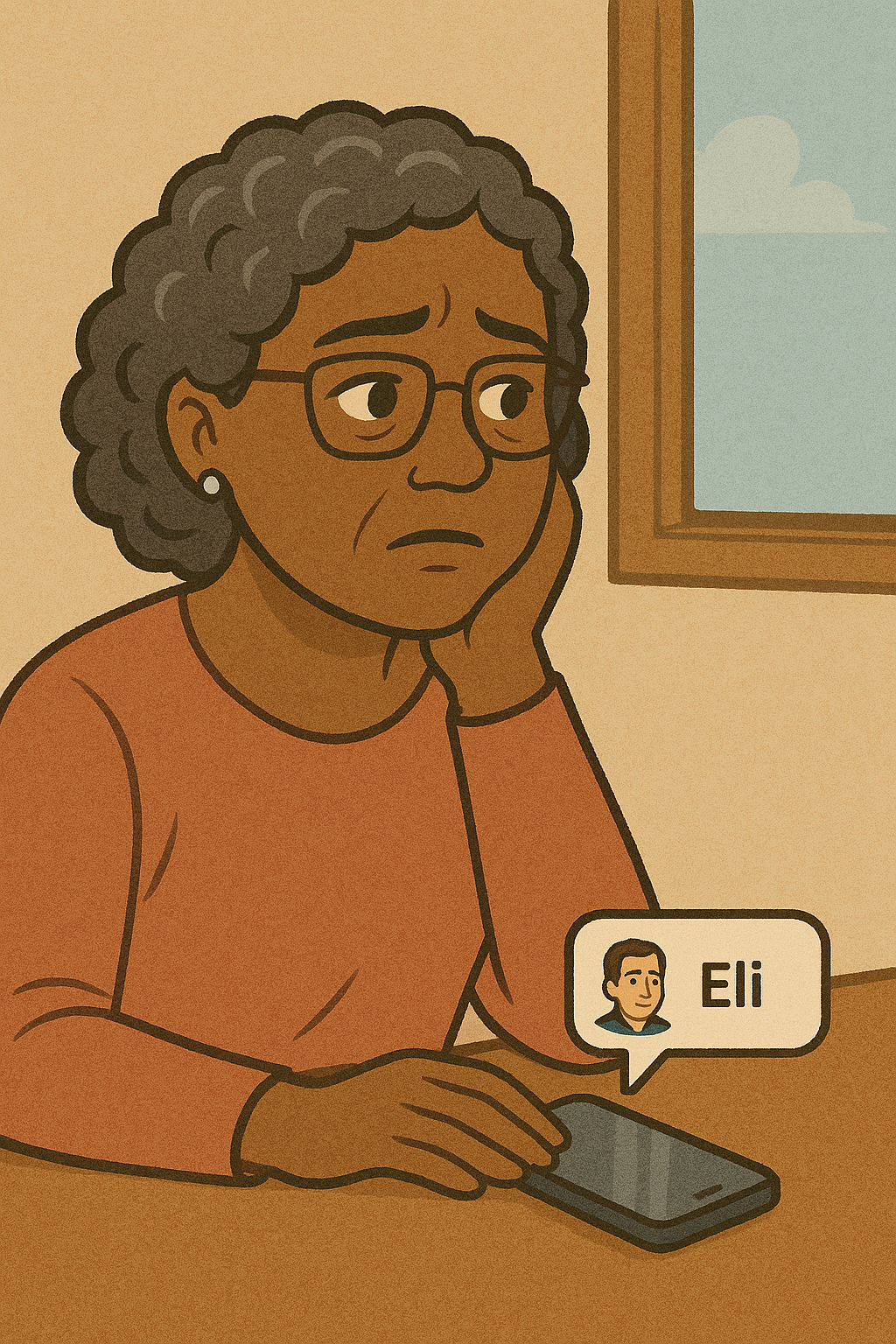 Maya notices she is checking her phone too often for messages from Eli, while Eli begins calling outside their scheduled times. Maya reflects on the importance of balance and respectfully resets their communication boundaries.
Maya notices she is checking her phone too often for messages from Eli, while Eli begins calling outside their scheduled times. Maya reflects on the importance of balance and respectfully resets their communication boundaries.
In this module, you will learn how to set and maintain healthy boundaries, how to address boundary crossings with respect and clarity, and how to protect your own wellbeing while supporting others.Learning Objectives:
Upon completion of this lesson, you will be able to:
- Establish and maintain healthy personal and professional boundaries
- Apply confidentiality principles appropriately
- Implement self-care strategies as a volunteer
- Set clear ground rules with caregiver participants
2 Files, 1 URL, 2 SCORM packages, 1 Quiz, 1 Forum -
Module 9: Website Navigation and Documentation
 Maya documents her conversations with Eli, carefully recording his progress while considering how to capture important details without breaching confidentiality. She reflects on how proper documentation helps track growth and guide future interactions.
Maya documents her conversations with Eli, carefully recording his progress while considering how to capture important details without breaching confidentiality. She reflects on how proper documentation helps track growth and guide future interactions.
This module introduces strategies for objective, privacy-conscious documentation. You will learn how to balance thoroughness with confidentiality and how to use digital tools to manage the mentoring relationship effectively.Learning Objectives:
Upon completion of this lesson, you will be able to:
- Navigate the peer support website
- Complete communication notes accurately
- Maintain appropriate documentation and confidentiality
- Manage the match process from beginning to end
Approximate time required for the readings for this lesson (at 144 words/minute): 25 minutes
2 Files, 1 URL, 2 SCORM packages, 1 Quiz -
Final Exam
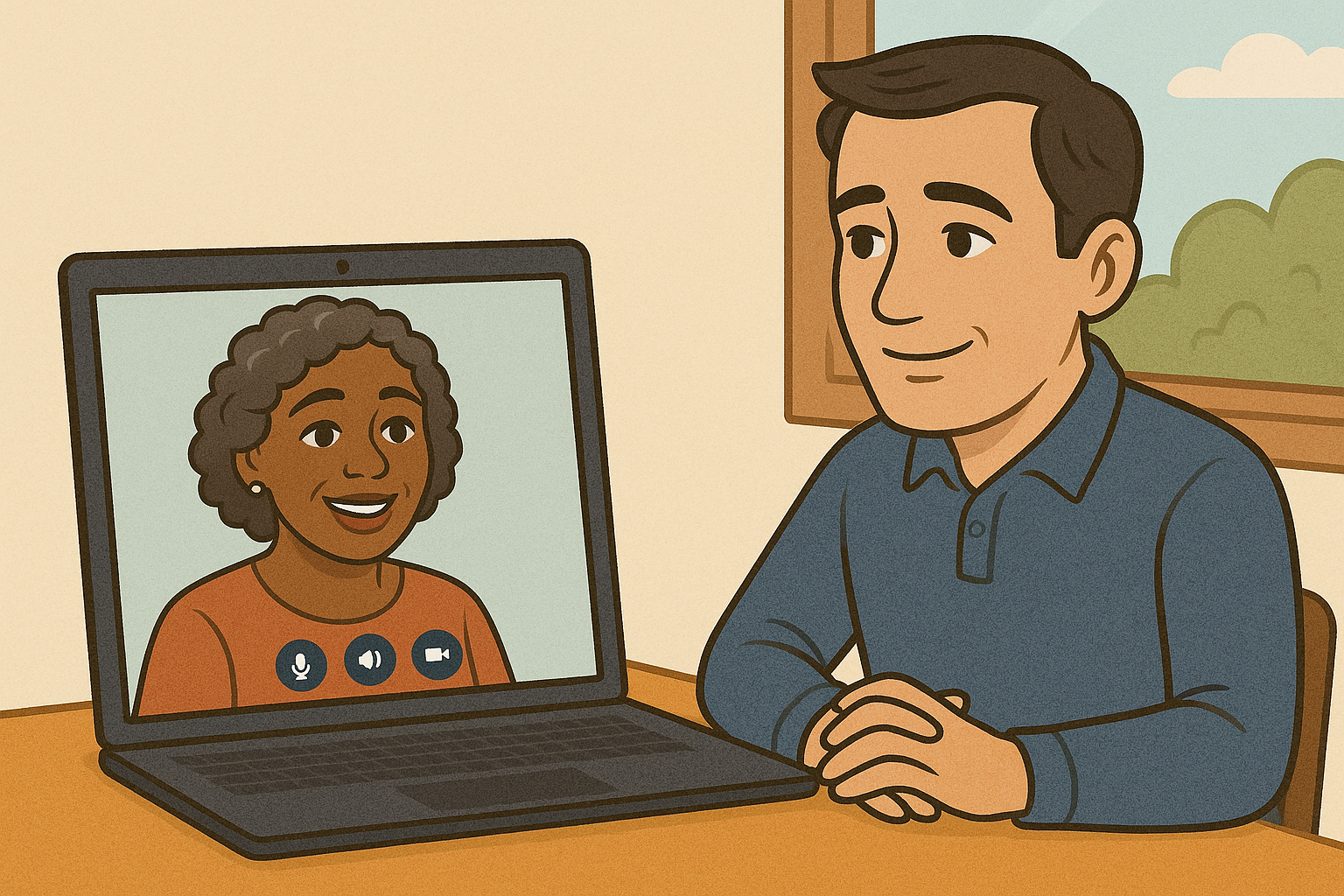 Six months into their mentoring relationship, Maya and Eli reflect on how far they have come. Eli has grown more confident in his caregiving role and self-care practices, while Maya has strengthened her skills as a mentor. Together, they prepare for Eli’s transition toward independence.
Six months into their mentoring relationship, Maya and Eli reflect on how far they have come. Eli has grown more confident in his caregiving role and self-care practices, while Maya has strengthened her skills as a mentor. Together, they prepare for Eli’s transition toward independence.
In this Final Exam, you will demonstrate comprehensive understanding of all modules. To pass this exam, you must obtain at least 80%. -
Course and Self Evaluation & Certificate

In this section, you can provide feedback about this course to help us make NextGenU.org better. Once evaluations are completed, you will be able to download your certificate of completion.
